I could hear the approaching thunder and the low rumblings of the thick black cloud as I lay by the mouth of a grave, in my trepidation, while the shining lights of black, white, red, and green candles danced in the wild wind amid the rising storm. The storm tossed us up and down, and soon broke out, and then everything roared. It was a roaring dark night. For hours, it went on, a night of storm and screaming skies, with peals of black thunder reminiscent of Anna Bontemps’ novel Black Thunder (1936). I didn’t know how, but the rumbles of thunder were clearly drawn into the politics and pragmatics of slavery and freedom, and slavery, which is the condition of the overwhelming number of Nigerians. In the end, everything was black, for the flames of the candles had now gone, leaving in its wake great sorrows that crushed and assailed us.
This is not Sonnie’s somnambulism. What is before us is nothing known to common sense: what is before us is total darkness, the eclipse of reason. What is before us are Nigerians sorrowfully writhing in pain, trying to come to terms with the flawed 2023 electoral verdicts. What pangs of excruciating pain molest us. Must we continue to dwell in slavery and servitude in our fatherland? What sorrows labor in our breasts? Far beyond our tearful feeble sight lies the Supreme Court of Nigeria. At the moment, the Supreme Court is the cynosure of all eyes. The highest court in the land is expected to dispense justice in the petitions resulting from the flawed 2023 elections. Salvation comes from Christ alone. Justice dispensed on earth is not philosophical truth. Earthly justice is not perfect justice. Perfect justice lies in the City of God, not in the City of Man. Nevertheless, we live on earth, in the City of Man, and we need earthly justice, no matter how imperfect it is, to build the City of Man. Justice, as the raison d’être of the judiciary and one of the cardinal virtues, is that vital thread that knits human society together. Without justice, it will be impossible to promote societal aims. “Remove justice, what are kingdoms but great robberies,” said St. Augustine.
To Justice Chukwudifu Oputa (of blessed memory), “Injustice breeds intolerance, violence, and social disorder in the same way justice brings along with it the blessings of peace and mutual understanding. Small wonder Cicero praises justice to high heavens by stating that the brightest of virtues shines above all in justice.” The so-called Nigerian question revolves around the failure to do justice. If every Nigerian is given his or her due in the scheme of things in Nigeria, there would probably be less social discontent and social strife in Nigeria. Those urging Nigeria to “move forward” often forget that Nigeria cannot “move forward” without shared core values or communally-binding ideals such as justice. A nation like the U.S. has been able to build a spirit and core around the core values of “life, happiness, and the pursuit of happiness.” Apart from the Super Eagles, I can hardly think of any Nigerian core values or communally-binding ideals that act as the superstructure for the building of our national ethos. Therefore, until we begin to build a nation with shared core values such as justice, Nigeria cannot “move forward.” There will be no peace in Nigeria where justice is denied or defeated because peace resides and grows in the crannies of justice. Where there is wrong, it is only justice that can right the wrong and thus restore peace and the balance of things.
Consequently, the Supreme Court is respectfully invited to exercise exceptional brilliance, a high sense of justice, and profound philosophical forensic legal enunciations in adjudicating the election petitions that would be brought before it in accordance with substantial justice (not technical justice). About seventy percent of the election petitions arising from the just-concluded flawed 2023 elections in Nigeria, especially the flawed presidential election, would end up at the Supreme Court. The Supreme Court is expected to live up to its bidding in those petitions, as the country’s highest court. You cannot steal what belongs to another person and turn around to be saying that the country should “move forward”. Move forward to where? How can the country “move forward” when it has not even started the journey? The monumental electoral frauds committed in the 2023 elections have truncated Nigeria’s journey to nationhood. The frauds have moved Nigeria back to 1964.
Four years ago, INEC and the Buhari government deceived Nigerians into believing that what would count in the 2023 election were the PVCs and the casting of votes on Election Day. Impelled by this, most Nigerians procured their PVCs and actually went out to vote on Voting Day. At every turn, the conversation centered on acquiring the PVC and nothing more. Besides, at the twilight of the Elections, President Buhari came out to swear to high heavens that his government was out to supervise the freest and fairest elections in the world, in which many Nigerians would look forward to and be grateful for his government. At that time, we thought that Buhari had repented and was poised to leave a lasting legacy for posterity, and history would judge him well. We were wrong. The INEC chairman also appeared on National TV a few days before the election to announce that there was no going back on the issue of using the BVAS to transmit election results. Little did the Nigerian voters suspect that the PVC and the voting would not count on Election Day and that the only things that would count were bribery and corruption, intimidation and threatening the life of electoral officers to falsify results in favor of APC [Bravo to Prof. Nnnena Otti who stood her ground and called the bluff of the Abuja pressuring her to falsify the Abia Gubernatorial election], carting away of the ballot boxes by the APC thugs, refusal to upload results with the BVAS by compromised INEC staffers, pressures from Abuja on electoral officers to manipulate the electoral process in favor of the APC. But on Election Day, February 25, the APC ruling party, in conspiracy with INEC staffers, brought out their rigging machinery to rig the presidential election in favor of the APC. Ditto for the Governorship and State Assembly Election on March 18, 2023. The regrettable aspect, however, was that despite the mounting complaints before INEC that the presidential election was massively rigged in favor of Emilokan Bola Tinubu, INEC chair Prof. Mamood Yakubu ignored the complaints and swiftly proceeded to announce Emilokan Bola Tinubu President-Elect by midnight, as well as issue him with INEC’s certificate of return. It beats the imagination that Prof. Yakubu should, amid the mounting complaints on the monumental electoral frauds that were committed on February 25, still hurry down to announce and return Tinubu as the winner. Yakubu obviously did that to destroy the rest and foist a state of helplessness and fait accompli on the matter. Which means that INEC and President Buhari deceived Nigerians by telling them that the only tools needed for the elections were PVCs when, in fact, the tools needed for the elections were gun-wielding political thugs, guns, knives, juju, intimidation, killing and maiming, vote-buying and falsification of results by refusing to upload results via BVAS.
Therefore, we respectfully urge our Supreme Court Justices, as I mentioned earlier, to do substantial justice in the petitions that will be brought before them. Justice is an indispensable human good. “Neither the morning star nor the evening star is as glorious as justice” (Aristotle in his Nichomachean Ethics). “Men are called good because of their justice” (Cicero). It’s a good thing that our Supreme Court Justices don’t live on the moon; they live on the part of the Earth called Nigeria. They and members of their respective families witnessed the electoral frauds committed on February 25 and March 18, respectively. If the Supreme Court Justices and their wives and members of their respective families had gone to vote on February 25 and March 18, they would have seen INEC staffers refusing to upload the results of the elections in flagrant violation of the INEC Rules and Regulations. They would have seen hired political thugs engaged in vote suppression, vote buying, and election rigging. They would have seen voters being beaten up and tortured for exercising their fundamental human right in the full glare of the public. And if they had waited for the votes to be counted and uploaded before departing the polling unit, they would have probably noticed that the votes were not uploaded via BVAS, or, as occurred in my polling unit, they would have noticed to their greatest chagrin that the APC thugs had stormed the polling unit and carted away with the presidential election ballot box. Watching TV or listening to the news, the Supreme Justices would have taken judicial notice that the February 25 and March 18 elections were the greatest electoral frauds committed in the political history of Nigeria.
This is why the world is keeping vigil at the moment and waiting for the Nigerian Supreme Court to remedy the electoral frauds that were committed in the 2023 elections in Nigeria. The crisis of integrity afflicting the country’s Supreme Court in the last seven and a half years is quite embarrassing and regrettable. In Nigeria, the power of the Supreme Court to dispense justice has been whittled down by executive lawlessness and interference in the course of justice. Nothing destroys the public’s confidence in the judiciary more than this kind of abuse. The Supreme Court Justices should restore the eroding public confidence in the Supreme Court. The Supreme Court should be reminded that it is accountable to the people in terms of its overall performance and in meeting the justice needs of the people in a timely and efficient manner. It must, therefore, interpret the law in a way that fulfills the needs and aspirations of the Nigerian people, as envisioned in sections 13, 14 (1) (2) (a) (b) (c) of the 1999 Constitution. Justice is rooted in public perception. Justice must not only be done but also be seen to be manifestly done. This is why Lord Hewart, the then Lord Chief Justice of England, laid down the dictum in the case of Rex v. Sussex Justices, [1924] 1 KB 256, that “it is not merely of some importance but is of fundamental importance that justice should not only be done but should manifestly and undoubtedly be seen to be done.” Therefore, the Supreme Court ought not to be surprised that its decisions, particularly in the cases of Ihedioha V Hope Uzodinma and recently Lawan V Machina and Akpabio V INEC and others, are evoking excoriating public criticism because the decisions were treacherously anti-democratic, anti-justice and clearly show that the Supreme Court is slavishly adhering to technical legalisms and formalism at the expense of substantial justice. The essence of the need for justice to be manifestly seen to be done was observed by the Master of the Rolls, Lord Denning, in Metropolitan Properties Co (FGC) Ltd v Lannon, wherein he stated, “Justice must be rooted in confidence, and confidence is destroyed when right-minded people go away thinking: ‘The judge was biased.'” To date, the public constantly refers to Imo State Governor Hope Uzodinma, who came fourth in the last Imo State Gubernatorial Election, as the “Supreme Court governor” because they feel that the Supreme Court was wrong in imposing him on the people of Imo State.
Our Supreme Court Justices should not be men of timorous proclivity and timidity. They must not bow to public sentiments, electoral defilement, and electoral roguery in their judgments. They should not be afraid of doing what has not been done before. They should not be afraid of upturning the flawed verdict of the flawed presidential election of February 25. They should be Justices of avowed integrity and judicial activism. For example, the very height of Lord Denning’s judicial activism was demonstrated in his often-cited dictum in the case of Parker V Parker where he said: “If we never did a thing that has not been done before, we shall never get anywhere. The law shall never stand still while the rest of the world goes on, and it will be bad for both.” So, our Supreme Court Justices should be bold and courageous. If, for example, it is proved that Emilakon Bola Tinubu should have been disqualified from contesting the last presidential election because the U.S. court had convicted him in a drug case, our Supreme Court should be courageous enough to come to that conclusion without any equivocation. If, for example, there is evidence that the presidential election was massively rigged in favor of Emilokan Tinubu or that Tinubu failed to satisfy the constitutional requirements to be declared a President of Nigeria, the Supreme Court should also be courageous enough to come to that conclusion, no matter whose ox is gored. Fiat justicia ruat coelum (Let justice be done though the heaven fail).
In 2017, the Kenyan election commission had declared incumbent Uhuru Kenyatta the winner by a margin of 1.4 million votes. But Raila Odinga, Mr. Kenyatta’s opponent, said the commission was “rotten” and demanded resignations and prosecutions. Chief Justice David Maraga, who was appointed by President Kenyatta, ruled that the election had not been “conducted in accordance with the constitution” and declared it “invalid, null and void.” Today, the name of Kenya’s Chief Justice David Maraga, and three of his colleagues, have been inscribed in the annals of African history. Prior to 2017, it was unprecedented in Africa for an opposition to successfully challenge a presidential election result in court. But the Chief Justice of Kenya changed that in 2017. Today, Kenyans praise Justice Maraga for having the courage to rule against President Uhuru Kenyatta, the man who appointed him as Chief Justice. So, we look forward to seeing the Nigerian Court do substantial justice in the petitions brought before it, especially the presidential election, in order to restore faith and confidence in the Supreme Court.
I argue that there should be a departure from the age-old corrupt structure of elevating only Justices of the Court of Appeal to the Supreme Court to fill the vacancy in that court. We should revert back to the old selective process. In the past, senior lawyers and academics with integrity were appointed to the Supreme Court to salvage the court from the doldrums of corruption, poor legal scholarship, and inefficiency that currently afflict the court. For example, Dr. Taslim Olawale Elias was appointed Chief Justice of Nigeria directly from the Bar. Augustine Nnamani SAN (of blessed memory) was appointed to the Supreme Court by Gen. Olusegun Obasanjo in 1979 from his position as the Attorney-General of the Federation and Minister of Justice. He was at the Supreme Court for 11 years. Justice Okay Achike (of blessed memory) was appointed judge of the High Court from academia and elevated to the Court of Appeal and the Supreme Court, respectively, in no distant time. There are more Dr. Eliases, Justice Nnamanis, and Justice Achikes waiting to be appointed to the Supreme Court. Indiana Supreme Court Chief Justice Loretta H. Rush has recently announced that the Indiana Judicial Nominating Commission would begin to accept applications from Indiana lawyers for appointment to fill the upcoming vacancy on the Court of Appeals of Indiana. Nigeria should imbibe the Indian practice.
Sonnie Ekwowusi Is A Legal Practitioner Based In Lagos






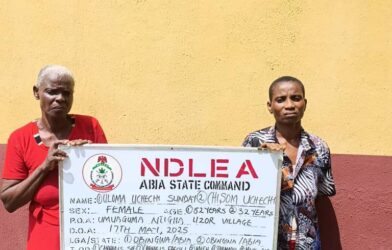
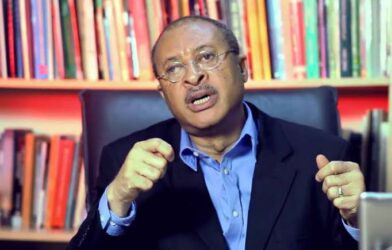
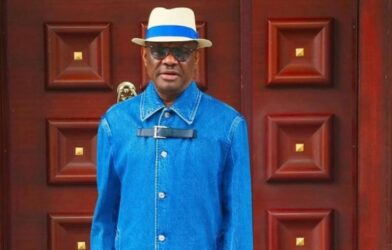
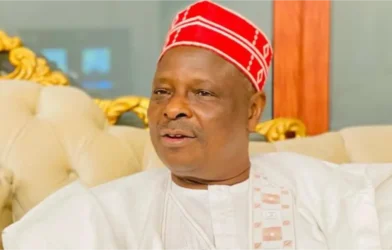
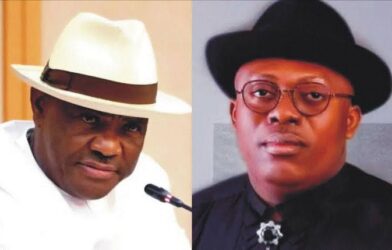
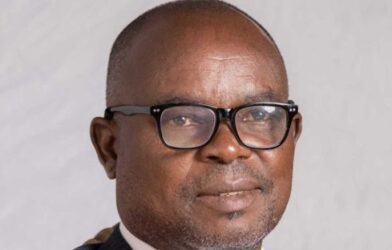
Comments are closed